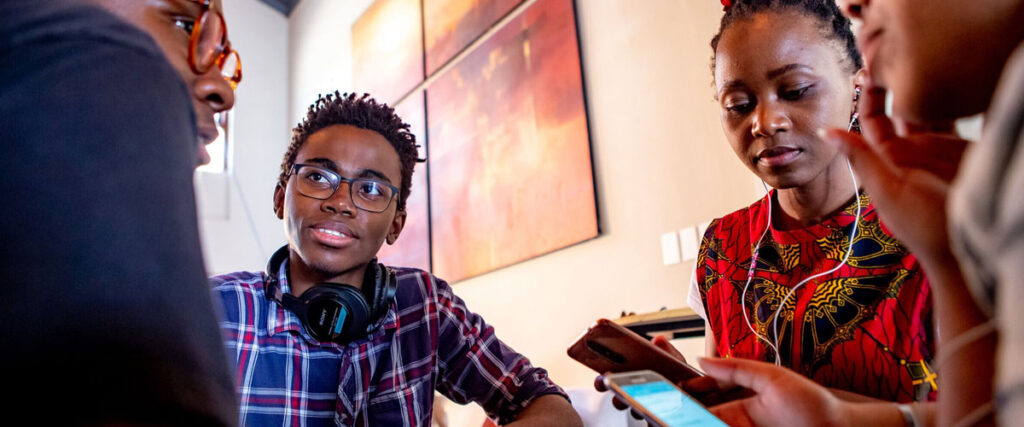An interview with David Kinnaman on how the church can reach out and connect in the digital world
Back in 2015 we met up with author, researcher, and President of Barna Group David Kinnaman to talk about the impact of digital and what it means for the global church.
Since then, technology and the way people connect has evolved, but nothing has accelerated the need for digital connection more than the social isolation triggered by the Coronavirus pandemic. As churches around the world seek to engage with their congregation and evangelise remotely, Alpha too is learning how to support churches in their mission to introduce people to Jesus online.
Below is an adapted version of our 2015 blog post, Digital Babylon:
Millennials and Gen Z have grown up in an era of constant communication, with new challenges and opportunities in a world unrecognisable to that of their parents. David Kinnaman is one of the people leading research into this new digital age and how it impacts the church as a whole.
Over his thirty years at the group, he has worked with a diverse array of clients such as NBC-Universal, Salvation Army, ONE Campaign and SONY. These clients come to Barna for their research and insight into social trends on matters of faith and contemporary society.
‘We live in an all-access world,’ David observes, ‘There is access now in ways we can’t comprehend.’ In this digital landscape we expect to be able to access information and the answers instantly, through search engines such as Google. ‘Google is the zeitgeist,’ he says, ‘It is what the church and parenting used to be. The normal way to learn about something used to be through the people around us, now it’s through online searches.’

David uses the phrase ‘Digital Babylon’ to describe this new, digital, connected world. He told us that for many it’s an ‘alienating power’. ‘With the rise of social media we are more connected than ever; we can Skype across the Atlantic and yet we are lonelier than ever.’ This is evident in findings from Barna’s research, which shows that in the United States people were twice as likely to say they were lonely in 2015, compared to ten years before.
So what does this mean for the church and modern culture? Should we steer away from digital and condemn the smartphone? Far from it. He is certain that we need to adapt: ‘The church has to use the tools of our time to be a counter-culture for the common good. We need to help people understand and be willing to ask and answer these kinds of questions.’
“The church has to use the tools of our time to be a counter-culture for the common good.”
For Alpha, David muses: ‘Maybe there is a core value in terms of being there in person that’s part of the founding vision; a certain sort of intimacy… But was the founding value the intimacy of relationships, honesty and a space for helping conversation more so than being in person?’ He continues, ‘Someone will figure out how to do things in a digital context that, before, we thought was not possible.’
Speaking about the cultural climate in the US and how groups like Alpha can relate, he says, ‘One of the opportunities for a programme seems to be to help make churches more accessible for someone who wants a conversation about what we really believe and why. We’re good at big events, but how do you make these places more intimate and somewhere that real spiritual dialogue can take place? I think there is a huge opportunity in the States for any programme that creates a real and realistic place.’




